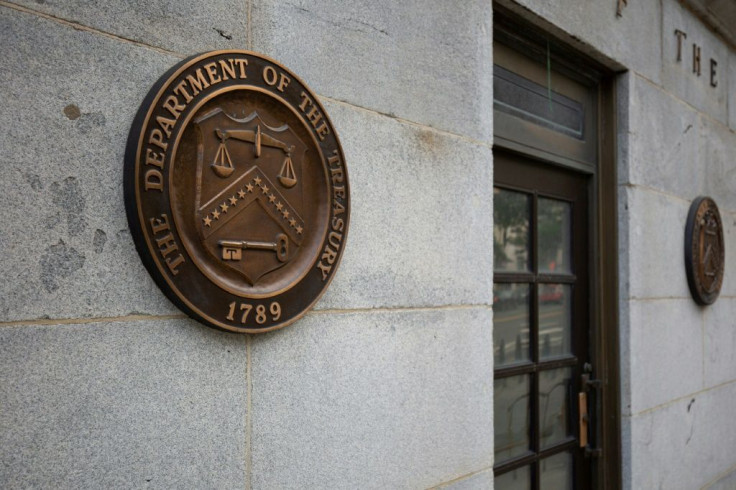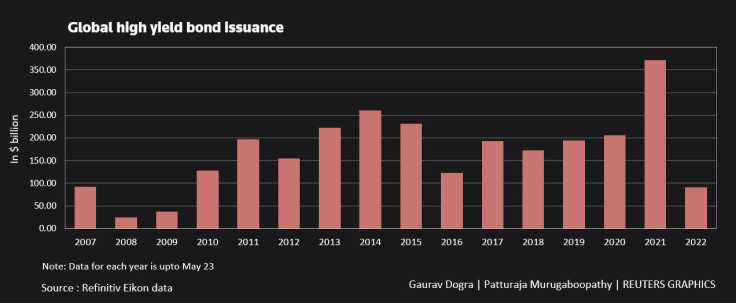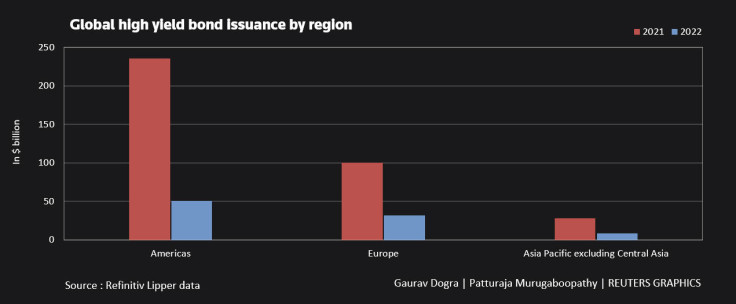Global High Yield Bond Issuance Slumps To Lowest In 13 Years

Global high yield bond issuance has fallen this year to the lowest since the global financial crisis, with companies hesitant to borrow at lofty rates given concerns over economic growth and supply chain disruptions.
According to Refinitiv data, global high yield bond issuance totalled $90 billion between Jan 1. and May 23 this year, the lowest amount raised during that period in the past 13 years.
Global high yield bond issuance:

U.S. high yield issuers have raised just $50 billion this year, a 78% drop over the same period last year. European and Asian junk bond issuance also declined by about 70% each to $31.8 billion and $8.5 billion respectively.
Global high yield bond issuance by region:

"Global high yield issuance has slumped due to a rise in interest rates and a slump in demand in the last quarter," said Troy Willis, chief investment officer at asset management firm Principal Street Partners.
"Many re-financings no longer bring any savings to the borrower at the new higher rates, and outflows in fixed income across the board have limited the potential buyers for newer high yield deals."
The yield-to-worst on the ICE BofA U.S. High Yield index, the commonly used benchmark for the junk bond market, stood at 7.3% on Wednesday, compared with just 4.3% at the start of the year.
The yield-to-worst is the lowest yield an investor would receive on a bond with an early retirement provision. The metric is considered a proxy for the rate at which an average high yield issuer would issue new bonds in the market.
Refinitiv data showed global high yield bond funds have witnessed outflows worth $62.8 billion in the first four months of this year, the most in 8 years.
Global high yield bond issuance hit a record high of $744.3 billion in 2021, bolstered by lower interest rates as governments sought to prop up their economies from the pandemic-induced slowdown.
However, soaring inflation levels around the world have prompted global central banks to reassess their monetary policies this year, and hike interest rates.
The U.S. Federal Reserve hiked its benchmark overnight interest rate by 50 basis points this month and market participants expect two more big hikes in June and July.
Rob Daly, director of fixed income at Glenmede Investment Management, said many high yield bond issuers do not need the financing right now as their earnings are still good, and companies have much better balance sheets.
"Some companies will need financing, and default scenarios are slightly increasing, but these are sector/name specific and aren't representative of a broader trend in the market right now," he said.
According to S&P Global data, the global corporate default tally declined to an 8-year low of 31 in 2022.
© Copyright Thomson Reuters 2024. All rights reserved.







